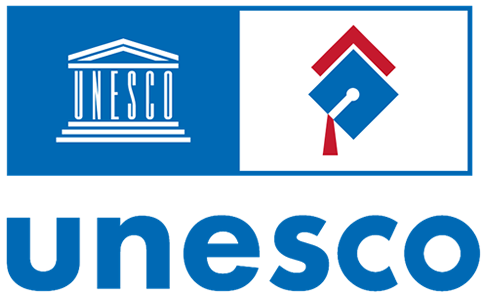University curriculum and quality of education. Theoretical and methodological contributions for the investigation of the training fields.
Abstract
The purpose of this article is to present some results of a phd thesis on knowledge structures and university curriculum carried out in the doctoral program of the University of Buenos Aires. The purpose of this research is to recognize and compare the epistemological logics that underlie the configuration of particular curricular codes in different domains of knowledge and to identify the main contemporary curricular tensions. We carried out a comparative analytical study of cases by contrast, taking as units of analysis three undergraduate degrees from the University of the Republic (Uruguay): Electrical Engineering, Dentistry and Sociology. In the conceptual theory, we approach the study of the university curriculum, recovering and articulating theoretical lines from the didactic field, the curriculum and higher education. The investigation allowed the construction of the codes of the specific study plans of the careers, as well as the curricular codes of the related training fields. Likewise, it contributes to the conceptualization of the nature and dynamics of the university curriculum as a particular epistemological training project, structured by the history of disciplines and professions. At the same time, theoretical-methodological contributions are made to university curricular research, constructing specific dimensions and categories of analysis that contribute to the analysis of the quality of education.
References
Altbach, Ph., Reisberg, L., y Rumbley, L. (2009). Trends in Global Higher Education. Tracking an Academic Revolution. UNESCO.
Arocena, R. (2014). Trabajando por una segunda reforma universitaria. La universidad para el desarrollo. Memoria del Rectorado 2006-2014. Ediciones Universitarias, Unidad de Comunicación de la Universidad de la República.
Arocena, R., Göransson, B., y Sutz, J. (2017). Developmental Universities in Inclusive Innovation Systems: Alternatives for Knowledge Democratization in the Global South. Palgrave Macmillan.
Barco, S. (2005). Del orden, poderes y desórdenes curriculares. En S. Barco (Coord.), Universidad, docentes y prácticas: El caso de la Universidad Nacional de Comahue. Editorial Universidad Nacional de Comahue.
Barnett, R. (2001). Los límites de la competencia: El conocimiento, la educación superior y la sociedad. Gedisa.
Barnett, R, Parry, G., y Coate, K. (2001). Conceptualising Curriculum Change. Teaching in Higher Education, 6(4), 435-449.
Becher, T. (2001). Tribus y territorios académicos: La indagación intelectual y las culturas de las disciplinas. Gedisa.
Camilloni, A. (2010). La formación de profesionales universitarios. Gestión Universitaria, Revista Electrónica de la Universidad Nacional de la Matanza, 2(2).
Camilloni, A. (2016). Tendencias y formatos en el currículo universitario. Itinerarios Educativos (9), Revista Electrónica de la Universidad Nacional del Litoral, 59-87.
Didriksson, A., y Herrera, A. (2004). Innovación crítica: Una propuesta para la construcción de currículos universitarios alternativos. Perfiles Educativos, XXVI (106), 7-40.
Goodson, I. (2003). Estudio del currículum: Casos y métodos. Amorrortu.
Goodson, I. (2005). Learning, Curriculum and Life Politics: The selected works of Ivor F. Goodson. Routledge.
Lundgren, U. (1992). Teoría del currículum y escolarización. Morata.
Orozco, B. (2016). Currículum y procesos de cambio educativo desde una perspectiva latinoamericana. Contextos, 5(20) 11-22.
Phenix, P. (1973). La arquitectura del conocimiento. En S. Elam (Comp.), La educación y la estructura del conocimiento. El Ateneo.
Pinar, W. (2014). La teoría del currículum. Narcea.
Riquelme, G. (2003). Educación superior, demandas sociales, productivas y mercado de trabajo. Miño y Dávila.
Schwab, J. (1973). Problemas, tópicos y puntos de discusión. En S. Elam (Comp.), La educación y la estructura del conocimiento. El Ateneo.
Schön, D. (1992). La formación de profesionales reflexivos: Hacia un nuevo diseño de la enseñanza y el aprendizaje en las profesiones. Paidós.
Teichler, U. (2005). Graduados y empleo: Investigación, metodología y resultados: Los casos de Europa, Japón, Argentina y Uruguay. Miño y Dávila, Filosofía y Letras, UBA.
Tünnermann, C. (2007). La universidad necesaria para el siglo XXI. Managua: HISPAMER.
Yorke, M., y Knight, P. (2006). Embedding employability into the curriculum. Learning & Employability Series I. The Higher Education Academy.
Copyright (c) 2022 Mercedes Collazo Siqués, Carolina Cabrera, Sylvia De Bellis, Virginia Fachinetti Lembo

This work is licensed under a Creative Commons Attribution-NonCommercial 4.0 International License.
Copyright notice
Copyright allows the protection of original material, and curbs the use of others' work without permission. UNESCO IESALC adheres to Creative Commons licenses in the open access publication of ESS. Specifically, texts published in this journal are subject to a Creative Commons Attribution-NonCommercial 4.0 International (CC BY-NC 4.0) license: ESS is an open access journal, which means that all content is freely available to the user or their institution. Users may read, download, copy, distribute, print, search or link to the full text of the articles, or use them for any other lawful purpose, without asking prior permission from the publisher or the author, always making sure to cite the author. Commercial use is not permitted. ESS requires authors to accept the Copyright Notice as part of the submission process. Authors retain all rights.
The full license can be found at https://creativecommons.org/licenses/by-nc/4.0/
 Attribution - NonCommercial (CC BY-NC 4.0)
Attribution - NonCommercial (CC BY-NC 4.0)
This journal does not charge authors for the submission or processing of articles. The authors of the contributions will receive acknowledgment of receipt that the work has reached the Editorial Team of the Journal.




.png)
